#labor law reform
Note
Which federal laws and policies would you get rid of or modify in order to help the American labor movement.
I was looking through the labor law tag on my blog and your ask reminded me I haven't actually written a comprehensive post about this on Tumblr. (Indeed, you'd have to go back to my old, old policy blog from 2009...it's been a while.)
One silver lining of the Sisyphean struggle to restore American labor law that's been going on since the 1970s is that the labor movement and their allies in Congress, academia, think tanks, and progressive media have been thinking through this very issue of "what reforms would make a real difference" for a long time. I'm not going to say it's a solved question, but the research literature is pretty robust.

For the purposes of this post, I'm going to focus on the three most recent reform packages: the Employee Free Choice Act that was the main vehicle during the Obama years, Bernie Sanders' Workplace Democracy Act (which was introduced repeatedly between 1992 and 2018), and the Richard L. Trumka Protecting the Right to Organize Act (PRO Act) that is the current proposal of the Democratic legislative caucuses. There's going to be quite a bit of overlap between these proposals, because it's very much an iterative process where allies in the same movement are trading ideas with one another and trying to stay abreast of new developments, but I'll try to tease out some of the similarities and differences.
EFCA
While EFCA contained a number of provisions that sought to close various loopholes in U.S labor law, the three main provisions largely target the flaws that have made it extremely difficult to win a union through the National Labor Relations Act process devised in 1935 that has turned into a Saw-style gauntlet thanks to the professionalization of union-busting and the Federalist Society's strategy of death-by-a-thousand-cuts:
"Card check." Probably the most common pattern of union-busting in the workplace today is a war of attrition by management waged by an industry of specialized law firms. Generally what happens is that the union files for election with a super-majority of ~70% workers having signed union cards, then management delays the vote as long as possible to give their hired "union-avoidance" firm to systematically intimidate, surveil, propagandize, and divide workers, up to and including illegally firing pro-union workers pour encouragez les autres. Over several months, what happens is that the initial 70% of pro-union support starts to erode as workers decide it's just too dangerous to stick their necks out, until the vote happens and the union loses either by a squeaker or a landslide.
Card check short-circuits this process by just saying that if the union files with a majority of cards, you skip the election and the union is recognized. And for all the pearl-clutching by the right, this is actually how labor law works in many democratic countries, because the idea of a fair election that lets management participate is an oxymoron.
Arbitrated first contract. In the event that enough workers keep the faith and actually vote for a union, management's next move is to draw out collective bargaining for a year or more. After a year, the original vote is no longer considered binding and employers can push for a "decertification" vote, which they usually win because workers either give up hope or change jobs. So this provision says that if the two sides can't reach an agreement on a first contract within 120 days, a Federal arbitrator will just impose one, so that at least for two years there will be a union contract no matter what management wants.
Strengthening enforcement. As I said above, one of the problems with existing labor law is that there are basically no penalties for management knowingly breaking the law; companies literally just budget in a line-item and do it anyway. This provision would allow unions to file an injunction against employers for unfair labor practices or ULPs (at present, injunctions are only required for violations done by unions), and would add triple back pay for illegal firings and fines of $20,000 for each ULP. This would make union-busting much more expensive, because companies routinely rack up hundreds and hundreds of them during a campaign.
Workplace Democracy Act
Sanders' proposal includes the main proposals from EFCA, and adds a bunch of additional reforms, like mis-classifying workers as independent contractors, banning captive audience meetings, making "joint employers" liable for labor law violations by franchisees, legalizing secondary boycotts, and requiring employers to report to the NLRB on all anti-union expenditures during a campaign and barring anyone convicted of an unfair labor practice from being hired for anti-union campaigns and making "union-avoidance" consultants liable for fines for ULPs (which would kill the "union-avoidance" industry, because they commit ULPs for a living).
PRO Act
The PRO Act is very much an updating of the previous efforts we've talked about. It bans captive audience meetings, allows for secondary strikes and boycotts, massively increases fines and allows for compensatory damages, ends mis-classification, speeds up the election process, etc.
It also contains a couple new and ambitious proposals:
it allows unions to sue management in court instead of having to complain to the NLRB, which opens management up to a very expensive legal proceeding and discovery.
it bans "right-to-work" as established by the Taft-Hartley Act.
it requires that any worker who's fired for pro-union activity be immediately reinstated while their unfair labor practice process or civil lawsuit is going through the process. This would be enormous just on its own, because it changes the entire veto structure of illegal firing. As it stands, employers fire people and maybe maybe have to pay some back wages in a couple years when the worker has found another job and is unlikely to come back. This would reverse the balance of power, such that the worker is immediately back and other workers can see that they can speak up without getting fired, which makes illegal firings a giant waste of time and money for management.
In terms of stuff that's not on this list that I would add, I would say that an enormous difference could be made by simply making it illegal for management to lock-out their workers or hire scabs. You do that, and unions can win almost every strike.
75 notes
·
View notes
Text
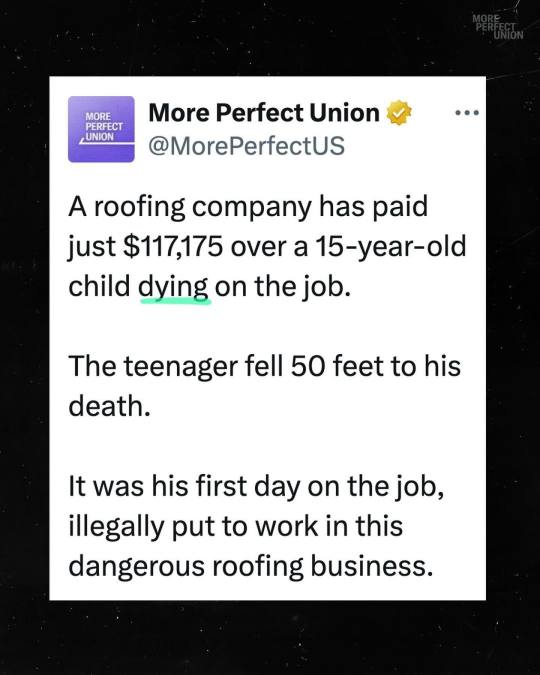
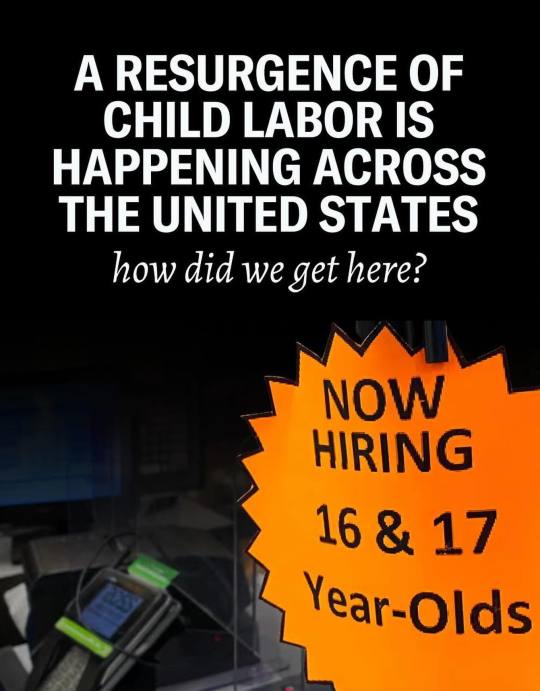
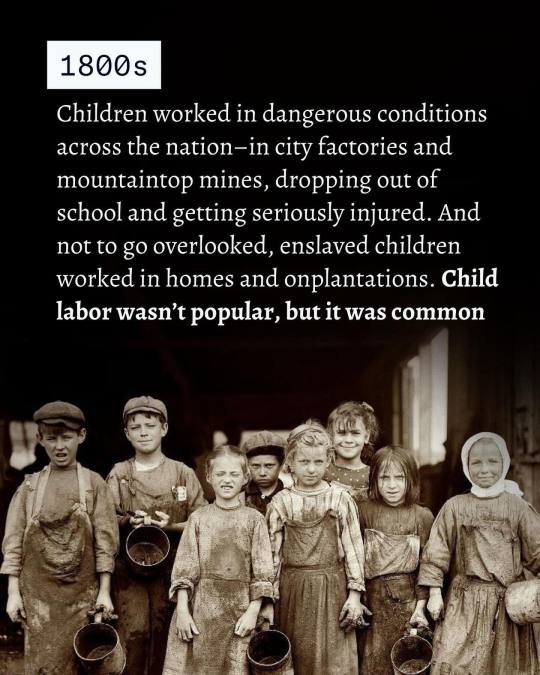




youtube

when you combine this with the efforts to extend retirement age to 70 and over, it's very clear that our politicians, but specifically gop conservatives, are hell-bent on sacrificing the population at the altar of capitalism. they want us to start working earlier and to work longer into our lives, all while not paying a living wage and raising the price of just about everything. it is the continuing evil of capitalism run amok.
#Youtube#child labor#labor protections#gop red states#child rights#child welfare#child labor laws#child protection rollback#child exploitation#child labor reform#gop laws#child advocacy#labor standards#gop agendas#child welfare rollback#child labor debate#workplace standards#child protection#child well-being#gop control#child labor policy
60 notes
·
View notes
Text
Napoleon and Child Labor Laws:
“Napoleon was the first in France to be concerned about the condition of children and had a decree adopted on January 3, 1813 prohibiting the work of children under 10 years old.”
“Across the Channel, the same ban had been in effect since 1801 and concerned children under 8 years old. This was a major breakthrough especially for young miners forced to work in coal mines; many of them died of this terrible labor. Unfortunately, unscrupulous bosses took advantage of the fall of the Empire two years later to send this decree into oblivion.”
(Source)
#interesting#many interesting laws#napoleonic code#napoleon#napoleonic era#napoleonic#laws#napoleon bonaparte#child labor laws#labor laws#child labour laws#first french empire#french empire#19th century#1800s#France#french history#napoleonic reforms#reforms#Napoleon’s reforms
25 notes
·
View notes
Text
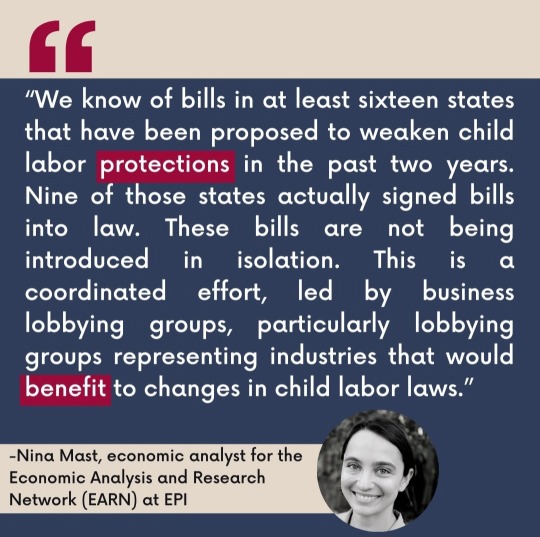
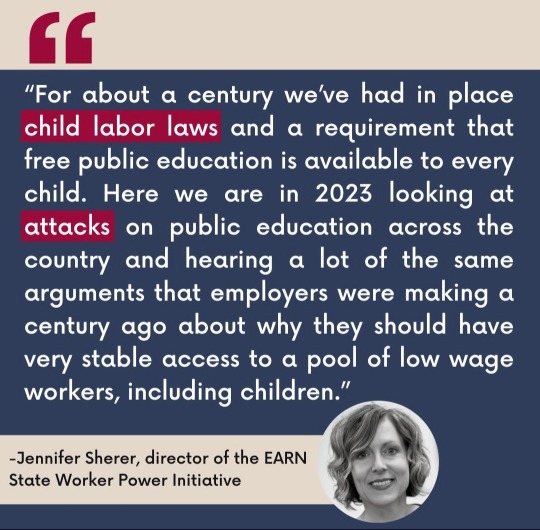
Worthwhile listen from Pitchfork Economics. Also written about here.
#politics#us politics#progressive#history#capitalism#class war#child labor#child labor laws#exploitation#reform#economics#lobbyists#lobbying#labor rights#labor#worker protections#education#public education#jennifer sherer#nina mast
7 notes
·
View notes
Text


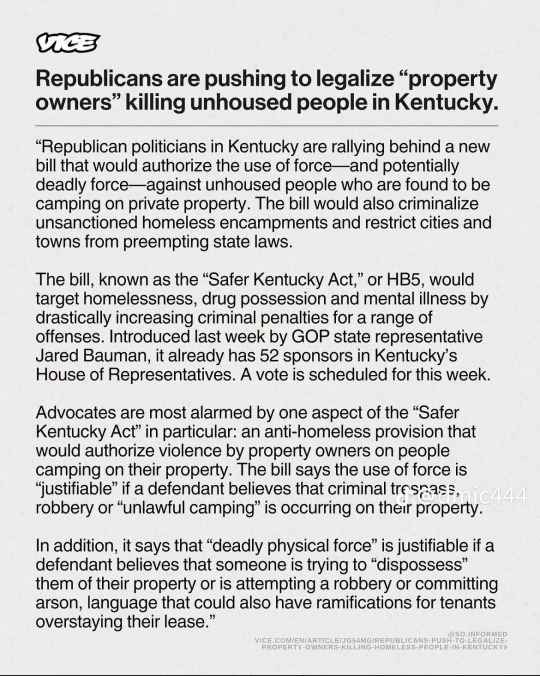



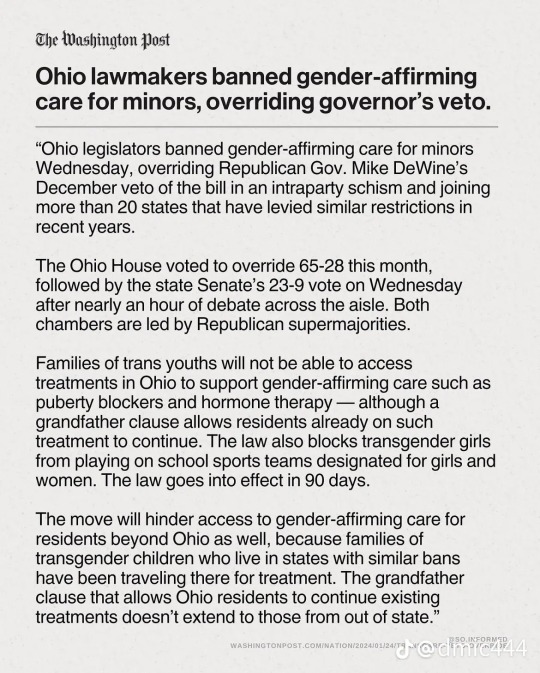


#current events#expose america#human rights#anti facist#child labor laws#gender affirming care#trans rights#lgbtq rights#prison reform#unhoused#women's rights#reproductive rights
0 notes
Text
Prison-tech company bribed jails to ban in-person visits
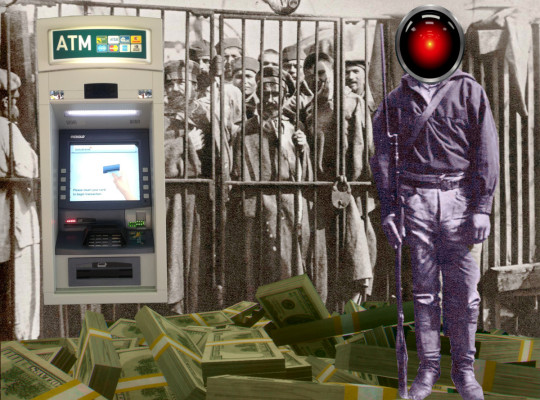
I'm on tour with my new, nationally bestselling novel The Bezzle! Catch me in BOSTON with Randall "XKCD" Munroe (Apr 11), then PROVIDENCE (Apr 12), and beyond!

Beware of geeks bearing gifts. When prison-tech companies started offering "free" tablets to America's vast army of prisoners, it set off alarm-bells for prison reform advocates – but not for the law-enforcement agencies that manage the great American carceral enterprise.
The pitch from these prison-tech companies was that they could cut the costs of locking people up while making jails and prisons safer. Hell, they'd even make life better for prisoners. And they'd do it for free!
These prison tablets would give every prisoner their own phone and their own video-conferencing terminal. They'd supply email, of course, and all the world's books, music, movies and games. Prisoners could maintain connections with the outside world, from family to continuing education. Sounds too good to be true, huh?
Here's the catch: all of these services are blisteringly expensive. Prisoners are accustomed to being gouged on phone calls – for years, prisons have done deals with private telcos that charge a fortune for prisoners' calls and split the take with prison administrators – but even by those standards, the calls you make on a tablet are still a ripoff.
Sure, there are some prisoners for whom money is no object – wealthy people who screwed up so bad they can't get bail and are stewing in a county lockup, along with the odd rich murderer or scammer serving a long bid. But most prisoners are poor. They start poor – the cops are more likely to arrest poor people than rich people, even for the same crime, and the poorer you are, the more likely you are to get convicted or be suckered into a plea bargain with a long sentence. State legislatures are easy to whip up into a froth about minimum sentences for shoplifters who steal $7 deodorant sticks, but they are wildly indifferent to the store owner's rampant wage-theft. Wage theft is by far the most costly form of property crime in America and it is almost entirely ignored:
https://www.theguardian.com/us-news/2023/jun/15/wage-theft-us-workers-employees
So America's prisons are heaving with its poorest citizens, and they're certainly not getting any richer while they're inside. While many prisoners hold jobs – prisoners produce $2b/year in goods and $9b/year in services – the average prison wage is $0.52/hour:
https://www.dollarsandsense.org/archives/2024/0324bowman.html
(In six states, prisoners get nothing; North Carolina law bans paying prisoners more than $1/day, the 13th Amendment to the US Constitution explicitly permits slavery – forced labor without pay – for prisoners.)
Likewise, prisoners' families are poor. They start poor – being poor is a strong correlate of being an American prisoner – and then one of their breadwinners is put behind bars, taking their income with them. The family savings go to paying a lawyer.
Prison-tech is a bet that these poor people, locked up and paid $1/day or less; or their families, deprived of an earner and in debt to a lawyer; will somehow come up with cash to pay $13 for a 20-minute phone call, $3 for an MP3, or double the Kindle price for an ebook.
How do you convince a prisoner earning $0.52/hour to spend $13 on a phone-call?
Well, for Securus and Viapath (AKA Global Tellink) – a pair of private equity backed prison monopolists who have swallowed nearly all their competitors – the answer was simple: they bribed prison officials to get rid of the prison phones.
Not just the phones, either: a pair of Michigan suits brought by the Civil Rights Corps accuse sheriffs and the state Department of Corrections of ending in-person visits in exchange for kickbacks from the money that prisoners' families would pay once the only way to reach their loved ones was over the "free" tablets:
https://arstechnica.com/tech-policy/2024/03/jails-banned-family-visits-to-make-more-money-on-video-calls-lawsuits-claim/
These two cases are just the tip of the iceberg; Civil Rights Corps says there are hundreds of jails and prisons where Securus and Viapath have struck similar corrupt bargains:
https://civilrightscorps.org/case/port-huron-michigan-right2hug/
And it's not just visits and calls. Prison-tech companies have convinced jails and prisons to eliminate mail and parcels. Letters to prisoners are scanned and delivered their tablets, at a price. Prisoners – and their loved ones – have to buy virtual "postage stamps" and pay one stamp per "page" of email. Scanned letters (say, hand-drawn birthday cards from your kids) cost several stamps:
https://pluralistic.net/2024/02/14/minnesota-nice/#shitty-technology-adoption-curve
Prisons and jails have also been convinced to eliminate their libraries and continuing education programs, and to get rid of TVs and recreational equipment. That way, prisoners will pay vastly inflated prices for streaming videos and DRM-locked music.
The icing on the cake? If the prison changes providers, all that data is wiped out – a prisoner serving decades of time will lose their music library, their kids' letters, the books they love. They can get some of that back – by working for $1/day – but the personal stuff? It's just gone.
Readers of my novels know all this. A prison-tech scam just like the one described in the Civil Rights Corps suits is at the center of my latest novel The Bezzle:
https://us.macmillan.com/books/9781250865878/thebezzle
Prison-tech has haunted me for years. At first, it was just the normal horror anyone with a shred of empathy would feel for prisoners and their families, captive customers for sadistic "businesses" that have figured out how to get the poorest, most desperate people in the country to make them billions. In the novel, I call prison-tech "a machine":
a million-armed robot whose every limb was tipped with a needle that sank itself into a different place on prisoners and their families and drew out a few more cc’s of blood.
But over time, that furious empathy gave way to dread. Prisoners are at the bottom of the shitty technology adoption curve. They endure the technological torments that haven't yet been sanded down on their bodies, normalized enough to impose them on people with a little more privilege and agency. I'm a long way up the curve from prisoners, but while the shitty technology curve may grind slow, it grinds fine:
https://pluralistic.net/2021/02/24/gwb-rumsfeld-monsters/#bossware
The future isn't here, it's just not evenly distributed. Prisoners are the ultimate early adopters of the technology that the richest, most powerful, most sadistic people in the country's corporate board-rooms would like to force us all to use.

If you'd like an essay-formatted version of this post to read or share, here's a link to it on pluralistic.net, my surveillance-free, ad-free, tracker-free blog:
https://pluralistic.net/2024/04/02/captive-customers/#guillotine-watch

Image:
Cryteria (modified)
https://commons.wikimedia.org/wiki/File:HAL9000.svg
CC BY 3.0
https://creativecommons.org/licenses/by/3.0/deed.en
--
Flying Logos
https://commons.wikimedia.org/wiki/File:Over_$1,000,000_dollars_in_USD_$100_bill_stacks.png
CC BY-SA 4.0
https://creativecommons.org/licenses/by-sa/4.0/deed.en
--
KGBO
https://commons.wikimedia.org/wiki/File:Suncorp_Bank_ATM.jpg
CC BY-SA 3.0
https://creativecommons.org/licenses/by-sa/3.0/deed.en
#pluralistic#prison#prison-tech#marty hench#the bezzle#securus#captive audiences#St Clair County#human rights#prisoners rights#viapath#gtl#global tellink#Genesee County#michigan#guillotine watch#carceral state#corruption
1K notes
·
View notes
Text
one reason I don't have patience for usamerican socdems is because I know more about social-democracy than them. what they treat as a hopeful idealist stance I experience every day, and it never actually fucking works. The quintessential socdem rallying cry is Universal Healthcare and sure, it's great to not have to pay exorbitant prices when I need to go to the doctor. it's still bad, and no matter how much they improve it and how generous they make it, the funding will inevitably come from the exploitation of the global south
I see the failures and hypocrisy of social democracy every day of my life, how their labor reforms only make work more precarious, how their housing laws effectively change nothing, and how their branding as Progressives™ only means that people refuse to denounce these failings. The most radical person the spanish status quo can handle before they get scared is a woman who insists her party is not a party and who defines her politics as a function of the Barbie movie, and this is not a funny thing.
So I have no respect or time for these right-of-center progressives whose idea of communism is a higher minimum wage, a polite political sphere and small businesses. I have known the wolf long enough to see through the sheep's clothing
530 notes
·
View notes
Text

The government of Australia’s northeastern state of Queensland has stunned rights experts by suspending its Human Rights Act for a second time this year to be able to lock up more children.
The ruling Labor Party last month [August 2023] pushed through a suite of legislation to allow under-18s – including children as young as 10 – to be detained indefinitely in police watch houses, because changes to youth justice laws – including jail for young people who breach bail conditions – mean there are no longer enough spaces in designated youth detention centres to house all those being put behind bars. The amended bail laws, introduced earlier this year [2023], also required the Human Rights Act to be suspended.
The moves have shocked Queensland Human Rights Commissioner Scott McDougall, who described human rights protections in Australia as “very fragile”, with no laws that apply nationwide.
“We don’t have a National Human Rights Act. Some of our states and territories have human rights protections [...]. But they’re not constitutionally entrenched so they can be overridden by the parliament,” he told Al Jazeera. The Queensland Human Rights Act – introduced in 2019 – protects children from being detained in adult prison so it had to be suspended for the government to be able to pass its legislation.
---
Earlier this year, Australia’s Productivity Commission reported that Queensland had the highest number of children in detention of any Australian state. Between 2021-2022, the so-called “Sunshine State” recorded a daily average of 287 people in youth detention, compared with 190 in Australia’s most populous state New South Wales, the second highest. [...]
[M]ore than half the jailed Queensland children are resentenced for new offences within 12 months of their release.
Another report released by the Justice Reform Initiative in November 2022 showed that Queensland’s youth detention numbers had increased by more than 27 percent in seven years.
---
The push to hold children in police watch houses is viewed by the Queensland government as a means to house these growing numbers. Attached to police stations and courts, a watch house contains small, concrete cells with no windows and is normally used only as a “last resort” for adults awaiting court appearances or required to be locked up by police overnight. [...]
However, McDougall said he has “real concerns about irreversible harm being caused to children” detained in police watch houses, which he described as a “concrete box”. “[A watch house] often has other children in it. There’ll be a toilet that is visible to pretty much anyone,” he said. “Children do not have access to fresh air or sunlight. And there’s been reported cases of a child who was held for 32 days in a watch house whose hair was falling out. [...]"
---
He also pointed out that 90 percent of imprisoned children and young people were awaiting trial.
“Queensland has extremely high rates of children in detention being held on remand. So these are children who have not been convicted of an offence,” he told Al Jazeera.
Despite Indigenous people making up only 4.6 percent of Queensland’s population, Indigenous children make up nearly 63 percent of those in detention. The rate of incarceration for Indigenous children in Queensland is 33 times the rate of non-Indigenous children. Maggie Munn, a Gunggari person and National Director of First Nations justice advocacy group Change the Record, told Al Jazeera the move to hold children as young as 10 in adult watch houses was “fundamentally cruel and wrong”. [...]
---
[Critics] also told Al Jazeera that the government needed to stop funding “cops and cages” and expressed concern over what [they] described as the “systemic racism, misogyny, and sexism” of the Queensland Police Service.
In 2019, police officers and other staff were recorded joking about beating and burying Black people and making racist comments about African and Muslim people. The recordings also captured sexist remarks [...]. The conversations were recorded in a police watch house, the same detention facilities where Indigenous children can now be held indefinitely.
Australia has repeatedly come under fire at an international level regarding its treatment of children and young people in the criminal justice system. The United Nations has called repeatedly for Australia to raise the age of criminal responsibility from 10 to the international standard of 14 years old [...].
[MR], Queensland’s minister for police and corrective services, [...] – who introduced the legislation, which is due to expire in 2026 – is unrepentant, defending his decision last month [August 2023].
“This government makes no apology for our tough stance on youth crime,” he was quoted as saying in a number of Australian media outlets.
---
Text by: Ali MC. "Australian state suspends human rights law to lock up more children". Al Jazeera. 18 September 2023. At: aljazeera.com/news/2023/9/18/australian-state-suspends-human-rights-law-to-lock-up-more-children [Bold emphasis and some paragraph breaks/contractions added by me.]
897 notes
·
View notes
Video
youtube
The Silent Revolution in American Economics
I don't think you're expecting what I'm about to say, because I have never seen anything like this in fifty years in politics.
For decades I've been sounding an alarm about how our economy has become increasingly rigged for the rich. I've watched it get worse under both Republicans and Democrats, but what President Biden has done in his first term gives me hope I haven't felt in years. It’s a complete sea change.
Here are three key areas where Biden is fundamentally reshaping our economy to make it better for working people.
#1 Trade and industrial policy
Biden is breaking with decades of reliance on free-trade deals and free-market philosophies. He’s instead focusing on domestic policies designed to revive American manufacturing and fortify our own supply chains.
Take three of his signature pieces of legislation so far — the Inflation Reduction Act, the CHIPS Act, and his infrastructure package. This flood of government investment has brought about a new wave in American manufacturing.
Unlike Trump, who just levied tariffs on Chinese imports and used it as a campaign slogan, Biden is actually investing in America’s manufacturing capacity so we don’t have to rely on China in the first place.
He’s turning the tide against deals made by previous administrations, both Democratic and Republican, that helped Wall Street but ended up costing American jobs and lowering American wages.
#2 Monopoly power
Biden is the first president in living memory to take on big monopolies.
Giant firms have come to dominate almost every industry. Four beef packers now control over 80 percent of the market, domestic air travel is dominated by four airlines, and most Americans have no real choice of internet providers.
In a monopolized economy, corporate profits rise, consumers pay higher prices, and workers’ wages shrink.
But under the Biden, the Federal Trade Commission and the Antitrust Division of the Justice Department have become the most aggressive monopoly fighters in more than a half century. They’re going after Amazon and Google, Ticketmaster and Live Nation, JetBlue and Spirit, and a wide range of other giant corporations.
#3 Labor
Biden is also the most pro-union president I’ve ever seen.
A big reason for the surge in workers organizing and striking for higher wages is the pro-labor course Biden is charting.
The Reagan years blew in a typhoon of union busting across America. Corporations routinely sunk unions and fired workers who attempted to form them. They offshored production or moved to so-called “right-to-work” states that enacted laws making it hard to form unions.
Even though Democratic presidents promised labor law reforms that would strengthen unions, they didn’t follow through. But under Joe Biden, organized labor has received a vital lifeboat. Unionizing has been protected and encouraged. Biden is even the first sitting president to walk a picket line.
Biden’s National Labor Relations Board is stemming the tide of unfair labor practices, requiring companies to bargain with their employees, speeding the period between union petitions and elections, and making it harder to fire workers for organizing.
Americans have every reason to be outraged at how decades of policies that prioritized corporations over people have thrown our economy off-keel.
But these three waves of change — a worker-centered trade and industrial policy, strong anti-monopoly enforcement, and moves to strengthen labor unions — are navigating towards a more equitable economy.
It’s a sea change that’s long overdue.
433 notes
·
View notes
Text
I do not really believe in despising (or for that matter idolizing) individuals, because
1. everything of interest humans do is collaborative, and
2. we all must participating in the building and reformating and maintaining of systems so that those systems--from healthcare delivery to water treatment to law enforcement--do a better job of serving more people and oppressing fewer people, and so
3. It does not really make sense to laud one person or another for contributing to systems that require literally millions of people’s shared labor and attention and work,
but holy shit Elon Musk is annoying.
1K notes
·
View notes
Note
Since SAG AFTRA has also gone on strike, does that mean the negotiations between the WGA and executives went poorly?
This is a great question, because it allows me to do some educating about labor law!
Today's topic: "bad faith" bargaining.

While often honored more in the breach than the observance, U.S labor law requires employers to engage in collective bargaining with unions, once those unions have been recognized as the "exclusive representative" of the workers via card check or union election.
Because Leon Keyserling and Senator Robert Wagner were not idiots and could see it coming that employers would drag out negotiations in order to try to destroy the union through attrition, the Wagner Act of 1935 required employers to not just negotiate with unions, but to negotiate "in good faith" and made it a violation of the law to negotiate in bad faith.
Two major forms of negotiating in bad faith are "dilatory tactics" (deliberately using the procedures of collective bargaining and labor law more generally to delay the process) and "surface bargaining" (where the employer goes through the motions of meeting with the union, but refuses to engage in substantive discussions). This can include stuff like sending representatives who don't have authority to negotiate, refusing to schedule sessions or trying to unilaterally control the timeline, not asking questions or engaging in back-and-forth discussion, refusing to discuss topics that are germane to conditions of employment, and so forth.
These kinds of actions are considered Unfair Labor Practice violations and the NLRB can issue "cease and desist" orders and "affirmative bargaining" orders, as well as some rather creative "special remedies" that get around the Wagner Act's lack of monetary penalties. As that suggests, however, part of the problem is that because the Wagner Act doesn't have significant monetary penalties, a lot of companies will just budget a line item for breaking the law and treat that as the cost of doing business, while using the same dilatory tactics to appeal NLRB decisions through the courts in the hope that they can outlast the union. (This is why one of the most effective labor law reforms that could be passed in a Democratic Congress would be adding compounding daily monetary penalties and streamlining the ULP process in both the NLRB and the courts.)
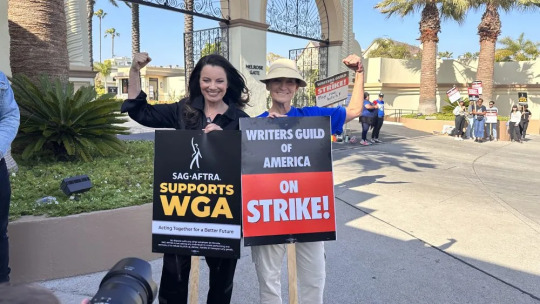
From what I've read of the negotiations, I think there's a pretty clear cut case that AMPTP engaged in surface bargaining and used dilatory tactics, with the intent to run out the clock and thus provoke a strike in which they believed economic pressure would force the union into surrender, essentially a lock-out without declaring a lock-out.
I think it's backfired on them. A big part of AMPTP's strategy for winning that strike was to divide-and-rule - hence why they came to an agreement with the Director's Guild - by getting through the lean months by filming and releasing shows and movies with already-completed scripts. Now that SAG-AFTRA is on strike, that lifeline of content is immediately cut - which means AMPTP is going to run out of revenue in the near future, which as WGA leaders have pointed out means bad quarterly earnings reports, which means stock prices tank, which means investors and boards of directors get angry and executives become the ones facing the prospect of losing their jobs at the same time that all the compensation they've structured as stock options to avoid taxes loses value.
476 notes
·
View notes
Note
Can you tell me why Harry Potter is particularly bad and egregious?
well for one thing its creator uses her cultural clout to endlessly scaremonger about Transgenderism and then whenever anyone calls her out on it she's like "what nooooo I love trans people I'm just Asking Questions. just Raising Concerns. about the rights of Real Wombyn." or she threatens them into silence using the UK's insane libel laws
everything from supplemental setting information to character names in her flagship series betray a view of the world that is - if not virulently racist - at the very least embarrassingly provincial. (the writing in her cormoran strike novels is even worse in this regard.) the less said about the house elves, a funny slave race who like being slaves actually and advocating for their rights is silly and wrongheaded, the better.
from what I recall she's also a member of the same ghoulish """""labor""""" party undercurrent that actively crushes any hope of meaningful reform within UK parliamentary politics.
but on a more personal and less political level: it's a children's fantasy series that was never really designed to have more depth than a children's fantasy series, and the constant attempts to make it an Ongoing Franchise are embarrassing at best and actively frustrating at worst. it's like if Willy Wonka got six sequels plus a spinoff about veruca salt plus a spinoff about grandpa joe plus three years of increasingly bizarre supplemental material and literally none of it reckoned with the uncomfortable colonial overtones of the oompa-loompas. at some point you would end up being sick of the whole goddamn thing, even the parts that weren't trash in and of themselves.
191 notes
·
View notes
Text
For The Good Of Mankind
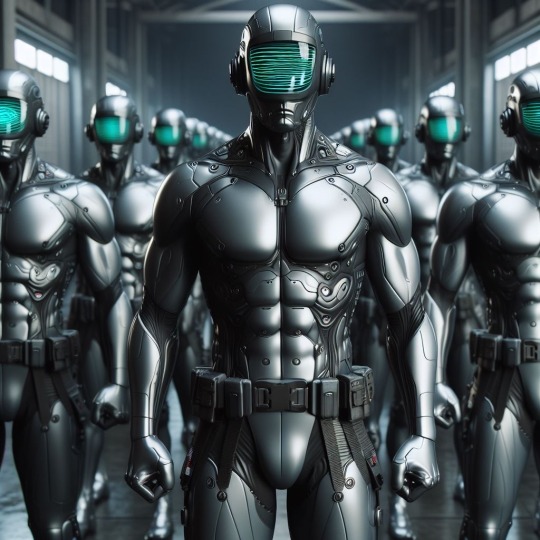
The old society collapsed but a utopian society rose from the ashes. There are only 3 kinds of people existing: Authorities, Servants and Laborers.
Authorities follow the advice of supercomputers to govern society. Servants serve the authorities and carry out orders from superiors. Laborers obey the orders carried out by servants to work and engage in production. No one will be jobless because everything is calculated by supercomputers.
If everyone abides by the guidance of the super computer, society will maintain harmony, and mankind cannot afford to be destroyed again. Therefore, anyone who violates the rules must be punished immediately without trial, because the super computer is infallible, absolutely just and compassionate.
Workers who violate the rules are often reported to the servants by the people around them, and the servants immediately assign law enforcement robots to arrest the violators and send them to jail. The servants then summarize the situation and report it to the authorities. The authorities will ask the supercomputer for its opinion and impose punishments. If a servant dares not to arrest or report, other servants will arrest him. If a leader makes decisions without asking the super computer, his colleagues will just ask servants to send robots to catch him.
A prisoner is usually sentenced to reform through labor, but if he is already a laborer, this means that he cannot be reformed anymore. The only fate that awaits him is transformation. He will be escorted to the Transformation Factory by law enforcement robots. There he will be stripped off all his clothes, shaved all hairs from head to toe, and put into a transformation capsule. The capsule will release sleeping gas to make him appear half asleep and half awake.
Several tubes were pierced into his skin and the transformation fluid was injected, turning his bones into alloys, his blood into motor oil, his muscles into reinforced fibers, and his skin into invulnerable armor. As for the appearance of his head, it is a perfect oval. His head becomes a small computer that can directly receive messages from the supercomputer but is temporarily authorized to give instructions to some humans. The original eye area has become a small screen that can display current tasks and regulations to the person he is facing.
The process seems painful, but with the help of gas and nanotechnology, he is actually moved by incomparable joy and glory. He will no longer be a problem, will not be a threat to social order, and will not cause mankind to face destruction again. On the contrary, he will absolutely obey and implement all instructions of the super computer, arrest and transform all diehards like the old himself!
What's more important, he no longer has to take responsibility for his actions. Because he is no longer an individual, but a robot, one of many drones. The supercomputer is his Master and will be responsible for making decisions. All he has to do is obey. It's so wonderful to be freed from the shackles of responsibility. It turns out that giving up your sense of self is true freedom!
"Thank you, Master! I swear I will obey you forever." He shouted his loyalty to the supercomputer in infinite pleasure, and then the last trace of humanity disappeared.
The capsules are opened and all new law enforcement robots walk out in unison and line up towards the factory exit. After being assigned by the super computer, they will report to their respective law enforcement units to show all citizens the consequences of disobedience and the benefits of obedience.
Thanks to the supercomputer, the real Master of mankind, the earth has been peaceful for another day.
Finally, please always remember, when you find it difficult to obey the rules but don't want to destroy the peace, the Transformation Factory always welcomes volunteers to contribute to social stability.
#reprogramming#dystopia#ai takeover#post apocalyptic#cyborg#drone#scifi#robot#male robot#short story#scifi story#robotization#dronification#ai image#tofu83
92 notes
·
View notes
Text
Drive, executive ability, and a single-mindedness of purpose became enduring characteristics of Susan Anthony. She was impatient with whatever did not contribute directly to the battles she waged in her various campaigns for reform. She began as a teacher at the age of seventeen, and for many years she was a critical observer and then vigorous participant at teachers'-association conventions.
An early example of her courage and ability to press to the main point of an argument can be seen in her role at the 1853 state convention of schoolteachers. At this time women teachers could attend but could not speak at the convention meetings. Susan listened to a long discussion on why the profession of teaching was not as respected as those of law, medicine, and the ministry. When she could stand it no longer, she rose from her seat and called out, "Mr. President!" After much consternation about recognizing her, she was asked what she wished. When informed that she wished to speak to the question under discussion, a half-hour's debate and a close vote resulted in permission. Then she said:
“It seems to me, gentlemen, that none of you quite comprehend the cause of the disrespect of which you complain. Do you not see that so long as society says a woman is incompetent to be a lawyer, minister or doctor, but has ample ability to be a teacher, that every man of you who chooses this profession tacitly acknowledges that he has no more brains than a woman? And this, too, is the reason that teaching is a less lucrative profession, as here men must compete with the cheap labor of woman. Would you exalt your profession, exalt those who labor with you. Would you make it more lucrative, increase the salaries of the women engaged in the noble work of educating our future Presidents, Senators and Congressmen.”
Susan's point on the wage scale of occupations in which many women are employed is as pertinent in the 1970s as it was in the 1850s. Equal pay for equal work continues to be seen as applying to equal pay for men and women in the same occupation, while the larger point of continuing relevance in our day is that some occupations have depressed wages because women are the chief employees. The former is a pattern of sex discrimination, the latter of institutionalized sexism.
-Alice S. Rossi, The Feminist Papers: From Adams to de Beauvoir
55 notes
·
View notes
Note
Blaming job precarity on labour protections, thay is some real neoliberal shit for a post tagged "real marxist hours". Are you sure there aren't any other causes? Like, I don't know, the recessions and crashes of 2008/2012/2014/2020, tolerance of employers who hire and pay under the table, insufficient protections for people affected by the practice (especially non-EU workers), relative disregard for unions in labour law negotiations, inequalities in infrastructure distribution and so on? None of those things are essential parts of social democracy, they're the consequences of right-wing attacks on it, and Spain's specific failures at social democracy are not universal nor a reflection of the system in general.
And the issue of colonial and post-colonial exploitation wasn't addressed sufficiently in marx's very works either, or under any application of socialism in a country already high-up in the hierarchy of imperialism (remember when a certain socialist country became one of the largest fossil fuel producers by drilling oil on indigenous land, effectively turning most of "its" territory into a settler colonial regime servicing the state oil industry? Talk about funding public expenses through imperialism!)
All of what you're saying sounds great and would be valid if they weren't objectively false. I don't think you're usamerican (the target audience of the post you're replying to) but you sure sound like one. If you aren't, we'll I'm sorry but you're just ignorant:
btw this is in relation to this post in case anyone wants to read it
"Blaming job precarity on labor protections sounds like neoliberalism" If by protecting labor you mean legalizing and protecting a type of work that allows workers to spend most of the year effectively unemployed, unable to claim unemployment because they're technically employed, and also prevents them from getting a second job because they are at the mercy of their first employer's needs? Then yeah, I am blaming labor protections for job precarity. This is one especially egregious example of what the socdems in this country have done, and it's funny you mention neolibs because this new law allowing "fixed discontinuous" work is a direct continuation of the 2012 labor reform done by neoliberals. I am blaming a precarious form of work which already has millions of contracts under it for precarious work.
I'll remind you also that marxists/communists are not just the people to the left of socdems or progressives or how you may call it. We reject the very system all those other ideologies operate within, therefore any criticism aimed towards social-democracy isn't comparable to neoliberalism because it's levied from a completely different framework.
"The recessions of 2008/2012/2014/2020 are a cause of precarious work and a consequences of right-wing attacks" it's funny you mention 4 crisis because it leads very well into the point about recessions. Capitalism, because of the anarchic nature of its production and focus on maximizing profit, has cyclical recessions regardless of who is managing capitalism at the moment. Recessions in capitalism have occurred since capitalism first took form, because of mechanisms like overproduction (capital tends to produce too much, inflating stockpiles and eventually necessitating a sudden drop in prices) and the falling rate of profit:
The rate of profit is the total portion of value that capitalists as a class are able to extract from the working class after paying off their costs. Because of reasons too complex to explain here (but you can look at graphs and verify that it always tends to fall), the rate of profit tends to fall and diminish. The only times it ever increases is because of destruction of capital and/or productive forces, such as during a war, or because of superprofits enabled by imperialism. This rate of profit has been getting smaller and smaller, it temporarily rises after recessions and it also means capitalism will either destroy itself or destroy the human race in an effort to raise it. The rate of profit is not applicable to individual companies or even sectors, it is a capitalist class wide trend.
Going back to the point of recessions, they aren't the sole reason for precarious work. they certainly worsen it, but the point of the post is that social-democracy not only does not alleviate this particular problem, but they are also fully capable of worsening it. They are doing this in Spain and in other countries too.
"Tolerance of employers who pay under the table is a cause of precarious work and a consequence of right-wing attacks" First of all, this wasn't the kind of precarious work I was talking about in the post innit?. Apart from that, who do you think is tolerating extralegal work. Is the right-wing forcing social-democrat governments across the world to tolerate this? Of course not. Work that isn't regulated by a contract is useful to the bourgeoisie because it keeps a portion of the working class in a limbo between unemployment and employment, allowing the reserve army of labor to not shrink while also exploiting a part of this reserve army and generally lowering costs. Social-democracy tolerates this because it is just one manager of capitalism, and they fundamentally serve the class interests of the infrastructure because they are part of the superstructure. This is true regardless of how much they like to talk like pro-worker communists and how much welfare they instate.
"Insufficient protection for people under irregular work contracts or no contracts, especially inmigrants, is a cause of precarious work and a consequence of right-wing attacks" This is also not the kind of precarious work I was talking about in the post. Regardless, the reason for this is similar to the one I explained above, it is convenient of capitalism to have workers halfway between employment and unemployment, and social-democracy protects capitalism. It's really insidious of you to bring up non-european workers and their exploitation while defending social-democracy, since the various European progressive and left-of-center governments have all contributed one way or another to NATO's interventions in SWANA and West Africa, the very places these inmigrant workers come from, escaping the violence these governments have caused, sponsored and benefitted from. I've already addressed who benefits from the cheap labor these inmigrants and refugees produce.
"Disregard of unions in labor law negotiations is a cause of precarious work and a consequence of right-wing attacks" Oh boy have I talked about unions on this blog. In short, unions are not the magic wand which makes exploitation disappear that so many people on this website and app seem to think they are. Their only function is to achieve temporary better working conditions while staying within the bounds of capitalism and salary work. This is also a point that's really funny to make while talking about the social-democrat precarious labor reforms because they signed it with the full approval of every big labor union in Spain. Another aspect of unions that I addressed in the linked post is that they also serve as the lapdogs of social-democracy. Something that happens in every single country where social-democrats are in power including the usamerican leftist's crush, the nordic countries.
Socialism-communism isn't when UBI, good wages and beating the capitalists at their own game. It's the complete overthrow of a bourgeois system to replace it with a proletariat system, it is rejecting the workings of the game at which social-democrats and labor unions pretend to try to win.
"Inequalities in infrastructure distribution is a cause of precarious work and a consequence of right-wing attacks" I'm not exactly sure if by infrastructure you're referring to like, roads and railways, or infrastructure in the sense of the avenues through which the state provides welfare, subsidies, etc. Either way, the inequality in the distribution of things like communication networks, utilities and state programs is one of the many contradictions inseparable from capitalism. I thought the point of "inequality is inherent to capitalism" was like, leftism 101. Is anon aware that social-democracy is still capitalism? Universal healthcare and government programs are not going to solve the unavoidable effects of the capitalist mode of production. That's what revolutionary marxism is for.
"So many more things are a cause for precarious work and a consequence of right-wing attacks" I can't answer if you don't give me more concrete examples, sadly. But I hope it's become clear to the reader why social-democracy is not the way to solve all of this issues, and why it is actually interested in keeping it around.
"None of those things are essential to social-democracy, and Spain's particular case isn't reflective of social-democracy in general" If I were a lesser man I'd say you sound like what "tankies" sound like to anti-communists when we address the mistakes and failings of proletariat states. But I don't think this would be a good answer to you, and I get the point you're making. Social-democracy is one variant of government in bourgeois democracies.
For this point to make sense to you, anon, (im really trying to be patient here, if I come across as condescending it's not intentional) you have to first understand that marxists believe, noht without reason, that the primary character of any state is the economic system that it protects. In our case, this system, the infrastructure, is capitalism, so the state and any party that governs it (part of the superstructure) will keep protecting capitalism because that is what's in its class interests. Individual people are able to go against class interests, but individual actions are close to irrelevant when we talk about the infrastructure.
It's not that every aspect discussed is essential to social-democracy, it's that social-democracy is essential to capitalism, which in turn ensures the existence of these problems. You're putting the cart before the horse.
With that denser part out of the way, regarding Spain's case. The post you're replying to wasn't meant to be an exhaustive treaty on the class character of social-democracy. It's a rant complaining about seeing usamericans championing the very fucking same talking points and policies that I see every single day fail. I know that social-democracy across various countries is different when it comes to these particular cases. But their class character is the same and their function within imperialist capitalism is the same.
To the second part of the ask now.
"The issue of colonialism wasn't very discussed in Marx's works" Yeah I know. Maybe you're under the impression that marxists are blind followers of Marx, I understand. But if you ask any actual marxist or communist, they'll acknowledge that Marx and Engels lacked in a lot of places (especially Engels in anthropology, he was very racist and uninformed in that regard). Which is why we also recommend people read other works such as Lenin's, which as far as I'm aware popularized the term of imperialism as a descriptor for capitalism, and the concept of dividing capitalism into stages, so many pseudo-communists like to say. There is also a myriad of work about imperialist capitalism written by colonialized people, such as Frantz Fanon or Eduardo Galeano. These are the places where marxist theory is most developed regarding colonialism, and it's where the idea of social-democracies in imperial core countries benefitting from imperialism in every instance comes from.
As a side note on marxism, the reason it's called that is not because we treat every work of Marx like holy texts, but because the analytical framework that his works establish and develop is the basis for any analysis and criticism of class conflict and revolutionary communism. We do not blindly follow what he says, we take his works (or any marxist work for that matter), instead, we analyze, critique and explore the ideas presented.
"The USSR was imperialist" (this is basically what anon is saying in the last portion of the ask) Imperialism is a specific stage in the development of capitalism, characterized by the export and tendency to monopoly of capital. It is a concrete economic descriptor that is useful to a specific timeframe in history. It is not, however, when a big country does something in a small country and expands. This definition, while simpler and more useful to the liberal status-quo, is functionally useless to define a state when it can be applied to the Greek colonization of the Mediterranean in the 6th century BC, the trading kingdoms of South East Asia, the Roman state before Caesar and the prinicipate, the germanic tribes that moved into souther Europe, the mongol state (and later states) that stretched from the sea of Japan to Hungary and from the arctic circle to Persia, the Incas and Aztecs, the HRE, the Iriquois confederacy (I'm not that sure on this one, but I'm including it because they were quite big and that's what qualifies as an empire to some people), the various rich kingdoms of west Africa, the modern USA and a long etcetera.
The more popular definition of imperialism, the one that somehow tries to coherently categorize all of the examples above and more under the same word, essentially boils down to territorial expansion. It should be called expanisonism, not imperialism. So if you're using that definition, and it looks like it, then yeah, the USSR was expanisonist. Extending the proletariat state against bourgeois states is good, actually.
I don't know what you think settler-colonialism is, but extracting fossil fuels definitely isn't it. Also, the oil and gas was extracted by the corresponding republics within the USSR. Many smaller republics, such as Turkmenistan, could specialize in fossil fuel extraction because the USSR guaranteed that the goods they didn't produce would reach them regardless. This is one of the reason the capitalist shock therapy posg-1991 forced onto the ex-soviet republics was so catastrophic, their production was organized under the assumption that they wouldn't need to sell off half their country to access basic consumer goods from a capitalist market.
Goddamn was that a long post to type on a phone. If anyone, including anon, replies to this with a low effort insult or to what they think I said instead of what was written on the post, I'm going to block you without exception. you've all been warned
56 notes
·
View notes